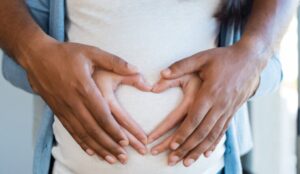 Are you wondering why you still have acne in your mid-20’s? Connie has this problem, plus it seems she needs to shave twice as often as her friends. She is overweight, always fighting the central bulge. And she has developed irregular periods. After trying to conceive for over a year she is realizing that it is all connected. She suspects that she has Polycystic Ovarian Syndrome (PCOS).
Are you wondering why you still have acne in your mid-20’s? Connie has this problem, plus it seems she needs to shave twice as often as her friends. She is overweight, always fighting the central bulge. And she has developed irregular periods. After trying to conceive for over a year she is realizing that it is all connected. She suspects that she has Polycystic Ovarian Syndrome (PCOS).
What is Polycystic Ovarian Syndrome (PCOS)?
PCOS affects approximately 5%-10% of women of women of childbearing age, and is thought to be one of the leading causes of female sub-fertility. Up to 74% of women with PCOS can have difficulty conceiving, but most are able to. At fertility clinics PCOS accounts for 7% of all infertility diagnoses.
You are considered to have PCOS if you have 2 out of 3 of the following:
- polycystic ovaries
- signs of high testosterone levels
- irregular periods and/or anovulation (not ovulating)
Polycystic ovaries are multiple cysts on the ovaries. This is diagnosed with an ultrasound done by your gynecologist. Most ovarian cysts resolve on their own. They can cause pain in the lower abdomen, pain with intercourse, and abdominal swelling. When many cysts are present and not resolving, as they typically do after healthy ovulation, you are considered to have polycystic ovaries.
High Testosterone levels (aka androgen excess). Testosterone is produced by the ovarian cysts. Signs include excess body hair, adult acne and sometimes obesity. 60% have elevated free testosterone levels on a blood or saliva test.
Irregular periods. Periods become absent, irregular, infrequent, last more than 35 days, sometimes heavy bleeding, or lack of ovulation. The most common is no periods or cycles longer than 35 days. Women can be infertile from lack of ovulation (anovulation).
Metabolic syndrome is also a common symptom of PCOS. It is characterized by central obesity, elevated triglycerides, hypertension, and elevated blood glucose or type II diabetes. You may also have sweet and carb cravings, depression or fatigue.
Does PCOS Affect My Signs of Ovulation?
Yes, if you have PCOS you will most likely be frustrated trying to track your signs of ovulation.
- You may not ovulate (anovulation) – see article “Do You Have Healthy Signs of Ovulation?”
- Your cervical mucus may build up to a wet texture, then become dryer, but you cannot confirm ovulation with your basal body temperature.
- Your urine LH stick may show positive even if you have not ovulated as it is not sensitive enough. This LH surge is not adequate.
You can use the charting of your signs of ovulation to tell you a lot about the health of your fertility. This may be the first place you get evidence to help you figure out why you are not pregnant yet. Remember, you can have PCOS and ovulate often enough to get pregnant.
What Can You Do About PCOS?
- Improve your lifestyle
- Eat a healthier diet – this is critical
- Avoid junk food, including refined sugar and flour, vegetable oils, sodas and artificial sweeteners
- Manage stress in your life
- Lose weight if you need to
- Exercise
- Get adequate rest
Eating a healthier diet is critically important to helping PCOS. The fat soluble vitamins (vitamin A, D, E and K2) and minerals are the most important, absolutely critical, nutrients to your health and especially to your fertility. Get these nutrients from foods, not pills.
To Your Vibrant Health!
Veronica Tilden, DO
